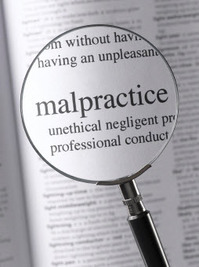CHICAGO, IL – Misdiagnoses in the healthcare industry frequently leads to medical malpractice which has garnished the media in recent years. In 2015, the National Academy of Medicine announced most people will receive at least one misdiagnosis during their life. Research conducted by the National Academy of Medicine in 2017 showed nearly 100,000 Americans died or were permanently disabled due to an incorrect or delayed diagnosis.
Each year, more reports begin to surface and numbers are steadily increasing in misdiagnoses. Many people struggle to find the right physician to trust, but there are a few things you can do to advocate for your own health.
Ways to Be a Better Health Advocate
Listen to word-of-mouth referrals: Referrals and recommendations from friends or family can be valuable, as they have experience with whichever facility and physician you may be seeking out. Try speaking to a neighbor, co-worker, or acquaintance about how long they have seen this provider and what their overall experience has been like.
Do your own research: In today’s digital age, you have the power to surf the web at your fingertips. Reading reviews of physicians and the healthcare facility are a key component of researching what may be a right fit for you.
Seek a second opinion: After receiving an original diagnosis, do not be afraid to look for a second opinion. Research shows that medical professionals would agree that if you are questioning your primary care physician, you should seek a second opinion. Although this may require a little more work, the importance of your health comes first.
Maintain your own records: It can be a hassle to transfer medical records from doctor to doctor, so it’s important you keep documentation of all medical records so you can see exactly what your doctor is seeing. Apple released an update to their Apple Health App where you can store all health records in one place including medications, immunizations, lab results, and more.
Review your medical records: By law, you have the right to correct any errors in your medical records. HIPPA protects you and ensures that all records are private and you are able to amend the record upon finding errors. It’s important to review the itemized bill as insurers normally work off the summary bill.
Medical errors are the third leading cause of death in the United States according to study conducted by Johns Hopkins in 2018. As many as 250,000 people die every year in the U.S. from medical errors while other reports claim numbers to be as high as 440,000. Doctors are required to provide a standard of care; however, failure to provide this level of care is considered medical negligence.
Types of Medical Negligence
- Misdiagnosis: an incorrect diagnosis of an illness or other problem, which can lead to unnecessary or harmful treatment.
- Delay diagnosis: a delay in diagnosis preventing a patient from receiving proper treatment in a timely manner.
- Medication error: prescribing an incorrect dosage or medication, or failing to check the patient’s allergies to a specific medication or prescribing a deadly drug.
- Surgical error: a preventable mistake by health professionals that result in further harm to the patient which can include operating on an incorrect body part or performing the wrong procedures.
- Infections: an infection is improperly treated, or the required effort to prevent the infection isn’t made.
- Birth injuries: when a healthcare professional or facility fails the standard of care and causes injury to the mother, the child, or both during a pregnancy or delivery that can causes serious, or in some cases permanent, life-long damage.
Contact a Dinizulu Law Group Medical Malpractice Attorney
If you find yourself or a loved one suffering from the negligence of a physician and have concurred health issues from the care you have received, you should seek help from legal counsel who has experience in the area of medical malpractice and negligence. Depending on the circumstance of the case, you may be able to file a claim against your physician, health care facility, and others. Consulting with one of our attorney’s at Dinizulu Law Group can provide you with the necessary resources during a free consultation. Please call our office or visit our website to schedule a free consultation and for more information.
Contact information:
Office: (312) 384-1920
Dinizulu Law Group, Ltd.
221 N. LaSalle St., Suite 1100
Chicago, IL 60601



